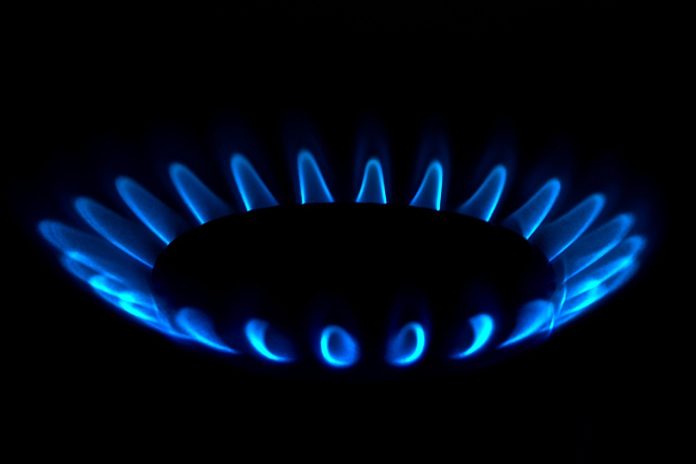This week, European natural gas prices surged almost 40 per cent, as traders were spooked by the potential for disrupted global liquefied natural gas (LNG) supply from Australia, following reports of possible worker strikes over there.
At the same time, leading German energy company EON SE warned that Europe’s energy market is still at risk of spiking prices this winter. This despite the fact that European wholesale gas prices have sharply decreased from record levels last year, while storage sites are almost full ahead of the winter.
Last winter, as Russian President Putin had turned off gas supply for the most part, Europe was spared thanks to mild winter weather, weak Chinese energy demand – as the country was still on “zero Covid” modus – and of course American LNG gas supply.
EON’s CEO Leonhard Birnbaum specified:
“We have to be clear that the structural change due to the Russian war in Ukraine and the drop out of Russian gas in the supply of Europe is going to stay and therefore the crisis is not over.”
He thereby added that he expects gas prices to increase, given how fuel shipped on tankers is generally more expensive than gas brought from Russia by pipelines.
Undesired shale to the rescue
In that respect, it is noteworthy that the more expensive American LNG shale gas which has saved Europe is also banned in Europe. Unsurprisingly, European campaigns against shale appear to have been funded by Russia, according to former NATO secretary general Anders Fogh Rasmussen.
Of course there are legitimate arguments to make against any energy source, and also against shale, but for example in the UK, the Royal Society and the Royal Academy of Engineering have reviewed the scientific and engineering evidence on the risks associated with hydraulic fracturing – often termed ‘fracking’ – as a means to extract shale gas. They thereby concluded that the health, safety and environmental risks can be managed effectively in the UK.
Ending domestic gas exploration
However, in the first place, all across Europe, regular gas exploration has faced serious political headwinds. Supposedly in the name of combatting climate change, but the bizarre thing here is that as European countries decided to shut down domestic gas exploration, they meanwhile continued to import gas.
Surely, if one wanted to phase out fossil fuels, including gas, the more sensible approach would have been to first restrict gas imports, certainly when being excessively dependent on Russia as a supplier, before shutting down domestic production. Certainly when the latter tends to be more environmentally friendly, at least when compared to the way gas is explored in places like Russia.
The Netherlands, which hosts the largest gas field in Europe and one of the world’s largest, is a case in point. The number of Dutch wells being drilled now is 80 percent less than a decade ago, while estimates of remaining undeveloped reserves have remained at a relatively constant level. Not only climate policies are responsible, but also obstruction by local authorities. Particularly the Groningen gas field is a hot topic. There, gas exploration has caused earth quakes, which have damaged houses.
NEW: Netherlands is set to permanently close Europe's biggest gas field in October after years of earthquakes in the region, sources say https://t.co/3qFv7eh6ss pic.twitter.com/ECjLA2ydfa
— Bloomberg Markets (@markets) June 15, 2023
Researchers from The Hague Centre for Strategic Studies have pointed out that due to more responsible drilling in Groningen, seismic risks “are now comparable to those in Vienna.” They thereby further specified that due to the procedure used to file a complaint, which includes a reversal of the burden of proof, “in recent years, there were, with reduced seismic energy being unleashed, almost 50.000 complaints per year that had hardly any link with the trembling. We can witness 1.000 per week, mostly from locations like Haren and Groningen city, at a distance from the trembling, where this could not or hardly be felt or where it is impossible to technically determine a link with damage. Varying water levels, which cause damage all over the Netherlands, are a much more likely cause of the damages that were reported.”
Despite these arguments, the Dutch government has now decided to shut down gas exploration in Groningen anyway, from October 2023 on. The confirmation of this caused European gas prices to increase with 20 percent, as an indication of how important this gas reserve is.
As mentioned, this is not only shortsighted from a geostrategic perspective. Extracting gas from fields in the North Sea and the Dutch mainland results in about 30 per cent lower greenhouse gas emissions than Russian gas imports and – often American – liquefied gas imports.
A British change of heart
Thankfully, things are changing almost everywhere else in Europe. In the UK, back in 2021, the government still stated it would only hand out new oil and gas licenses if companies could pass a stringent “climate compatibility checkpoint” that ensured any new production would be in line with its climate targets. Also the likes of France, Ireland, Portugal and Denmark then announced that they will no longer issue new oil and gas licenses, justifying this with the need to tackle climate change.
Last month, the UK government announced a major policy reversal, revealing plans to allow a big expansion of drilling for oil and gas in the North Sea. British PM Rishi Sunak justified this by saying: “Even when we’ve reached net zero in 2050, a quarter of our energy needs will come from oil and gas. But there are those who would rather that it come from hostile states than from supplies we have here at home.”
Like Sarah, I care about the UK reaching net zero. And I’ll get us there in a proportionate and pragmatic way.
By backing new oil & gas licences in the North Sea, we will:
⚡️ Power Britain from Britain
🔋 Become more energy independent
🇬🇧 Boost British jobs
⬆️ Grow the economy pic.twitter.com/8Vh56pU9nR— Rishi Sunak (@RishiSunak) August 2, 2023
Belgian Professor Samuele Furfari, who served at the EU Commission’s Energy Directorate for a long time, commented:
“London wants to relaunch oil and gas production in the North Sea. The Greens have lost. Everything excessive is insignificant, as Talleyrand once said. Faced with the reality of life, only the media and teenagers still believe in green energy.”
The public seems to enjoy the u-turn. A Yougov poll among Britons saw 42 percent supporting the new policy to issue new licenses, against only 27 percent opposing it.
Also mainland Europe is turning
Also in EU member states, the debate is changing. CEO Patrick Pouyanne of French giant TotalEnergies recently announced that the company would remain committed to oil and gas for a long time, explaining:
“Today, our society requires oil and gas … Why we are together, it is 80% of fossil fuels. There is no way to think that overnight we can just eliminate all that and rely only on 10% of low-carbon energy. It will take decades to build a new system.”
Furthermore, when it comes to the ban on the sale of new gas boilers, something which is provoking massive opposition in both Germany and the UK, dissent within the French government is becoming evident. French Economy Minister Bruno Le Maire has already come out against, stating that it would be “a bad idea, which will cause a great deal of concern among our most modest compatriots”.
In Italy, the government announced in November to expand concessions to drill for gas in the Adriatic, in a drive to double Italian output to 6 billion cubic metres per year and lower energy prices for firms.
Both in Belgium and Germany, new gas-fired energy stations are under construction – to cope with irresponsible shutdowns of nuclear power capacity. In the case of Germany, this is even supposed to double gas firing capacity. Meanwhile, the country has also constructed new LNG container hubs, to receive the gas that is no longer flowing by pipeline from Russia.
In Denmark, the Danish Energy Agency also just launched a tender for the exploration and production of oil and gas at a new concession in the North Sea, which is a reversal of the country’s decision to end new oil and gas exploration in North Sea, 80 years after it first began exploring its hydrocarbon reserves.
A debate in flux
In sum, the policy debate about natural gas is very much in flux. Coming up in September is the largest natural gas, hydrogen and LNG conference in the world, Gastech 2023, which will take place in LNG trading hub Singapore this year, gathering more than 40.000 attendees, including more than 300 ministers, CEOs and business leaders, from more than 100 countries.
No doubt, there will be abundant food for discussion. Primarily, expect the fall-out of the major supply shock in 2022 to be debated, but perhaps even more importantly are the major changes in policy attitude towards gas in Western Europe, where until recently, the talk was mostly about banning, restricting and phasing out this fossil fuel. True, one month ago, EU Climate Commissioner Frans Timmermans was still boasting that the EU would push for a fossil fuel phaseout ‘well ahead of 2050’ at Cop28. Timmermans has meanwhile announced his departure, and in practice, European government do not seem so keen to abandon reliable fossil fuels like gas.
The debate may now well move onto how to make fossil fuels more environmentally sustainable instead. At the Singapore gathering, a major topic will reportedly be to demonstrate how the gas sector is not only able to deliver solutions to energy security and affordability but also to sustainability.
Again TotalEnergies CEO Patrick Pouyanne has put this neatly:
“We must do two things: To continue to produce the oil and gas, [while] of course being very strict on the emissions. The question is not fossil fuels, it is emissions, to lower the emissions.”













